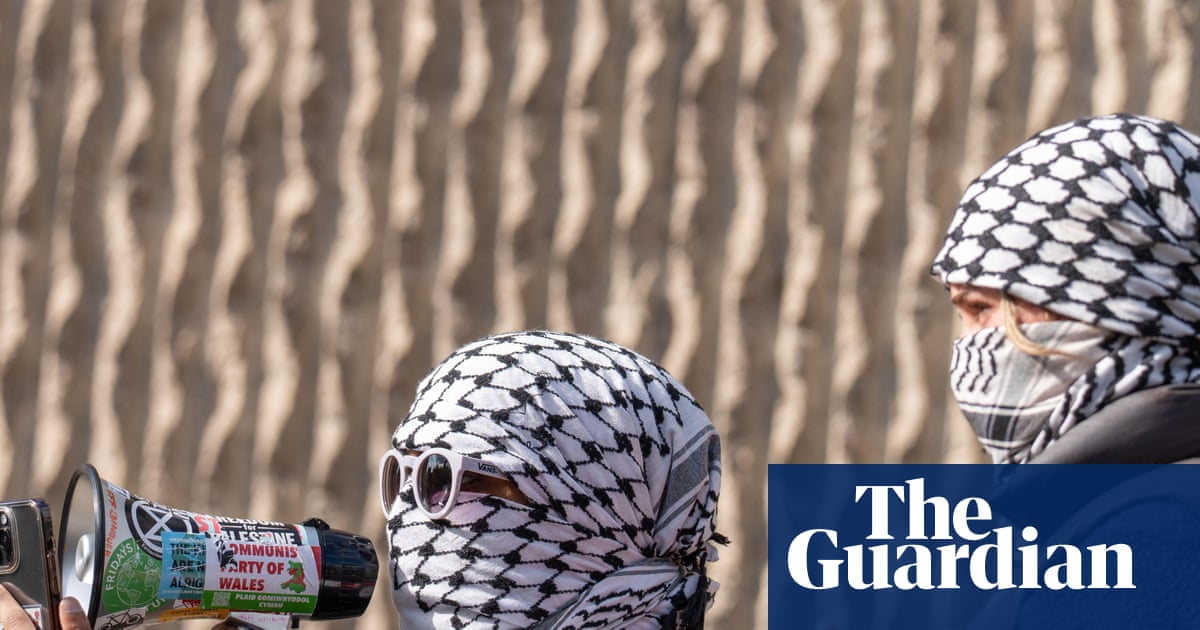Universities in the UK reassured arms companies they would monitor students’ chat groups and social media accounts after firms raised concerns about campus protests, according to internal emails.
One university said it would conduct “active monitoring of social media” for any evidence of plans to demonstrate against Rolls-Royce at a careers fair.
A second appeared to agree to a request from Raytheon UK, the British wing of a major US defence contractor, to “monitor university chat groups” before a campus visit.
Another university responded to a defence company’s “security questionnaire” seeking information about social media posts suggestive of imminent protests over the firm’s alleged role in fuelling war, including in Gaza.
The universities’ apparent compliance with the sensitivities of arms companies before careers fairs has emerged in emails obtained by the Guardian and Liberty Investigates after freedom of information (FoI) requests.
Jo Grady, the general secretary of the University and College Union, said student protesters “should be supported by their universities, not surveilled by them”. She said: “It is utterly shameful that so many universities have spent time and resources surveilling students who are engaged in peaceful protest against a genocide, and that some have seemingly done so on the say-so of defence companies.”
There have been large-scale pro-Palestinian protests by students on campuses across the UK in the past two years and demonstrations at careers fairs against companies with Israeli government links.
The Association of University Chief Security Officers (Aucso) launched a coordinated effort to prevent protests “affecting our students’ career advancement”, according to notes released under FoI laws from a January 2025 presentation by Aucso to Universities UK, the body representing vice-chancellors.
Aucso, which has security staff at more than 140 universities, wrote that its members “monitor[ed] media/social media” and deployed “static officers (at entrance points near the targeted company) and mobile officers (to monitor surrounding areas and for rapid response)” during events.
Aucso security staff also used bodycams to capture video for “legal/disciplinary proceedings”, among other measures, the email said.
Aucso was approached for comment.
Defence companies that individually raised concerns with institutions before careers fairs about the potential for protests were offered reassurance, emails suggest.
Loughborough University told a recruitment firm running a “Rolls-Royce roadshow” that its security team were conducting “active monitoring of social media … to provide early intelligence about protests”. It was doing so, it wrote, as “protest has been a concern for employers in recent times”.
A Loughborough University spokesperson said previous masked protests by Loughborough Action for Palestine (LAFP), a group that says it is made up of staff, students and alumni, had caused some students to feel unsafe amid allegations of antisemitism.
“We observe the group’s public feed occasionally so as to forewarn those who may be affected in advance of any protests. We are unapologetic for this. We do not surveil students’ social media,” they said.
LAFP responded in a statement: “We are extremely concerned but unsurprised that a few peaceful protests on campus have been perceived as threats to student safety and have been weaponised to ‘justify’ surveillance of students by university management.”
Rolls-Royce declined to comment.
Emails from Heriot-Watt University (HWU) suggest Raytheon UK asked the university to “monitor university chat groups” on its behalf before a careers fair, prompting the university to agree to “implement the measures you have suggested”.
A HWU spokesperson said the university “strongly refuted” any claims it monitored students’ private correspondence, adding that safeguarding staff did not have access to any student chat groups or online discussion forums. The university did not provide further explanation for its response to the arms company. Raytheon declined to comment.
Further emails suggest BAE Systems required Glasgow university to complete security questions before agreeing to attend events. A “university security questionnaire” sent to Glasgow by the defence company asked if the institution was “aware of any social media protests posts or videos”.
In May this year, Glasgow university’s careers service staff met the arms firm Leonardo, whose employee afterwards wrote: “It’s reassuring to know that we’re not going to have the [sic] step back because we can’t find a route to engaging with students and keep [sic] our staff safe.”
Leonardo was approached for comment. The University of Glasgow did not respond to a request for comment.
In February 2024, Cardiff University moved its career event online “in agreement with BAE” after staff spotted a social media post calling for a protest, emails show.
A Cardiff University spokesperson said: “We reject the suggestion that we’ve put students ‘under surveillance’. The protest was posted on a public-facing social media account. This was picked up as part of our day-to-day media monitoring.
“We routinely monitor mentions of Cardiff University, including those made on social media platforms, to measure engagement with our communications activity and in relation to reputation management. This type of activity is not unique to Cardiff University and is used by other universities and organisations.”
BAE Systems said it did not directly sell weapons to Israel. It declined to comment further. The UK does supply BAE-made components to a global pool of F-35 jets that Israel can access.
Almost one in four (37 out of 154) UK universities launched disciplinary investigations into pro-Gaza student and staff activists between October 2023 and March 2025, with up to 200 people affected, data compiled by Liberty Investigates shows.
